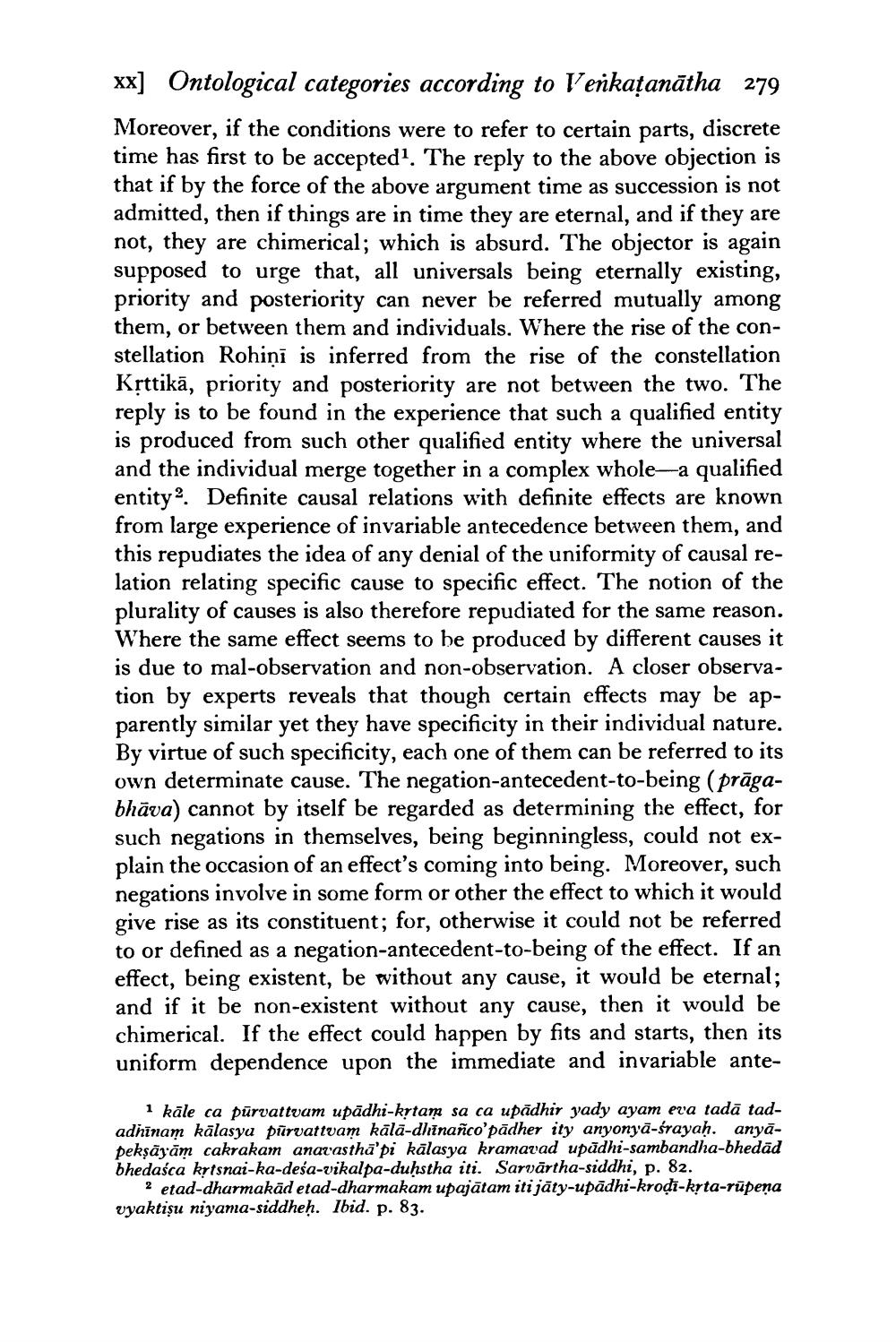________________
xx] Ontological categories according to Venkațanātha 279 Moreover, if the conditions were to refer to certain parts, discrete time has first to be accepted. The reply to the above objection is that if by the force of the above argument time as succession is not admitted, then if things are in time they are eternal, and if they are not, they are chimerical; which is absurd. The objector is again supposed to urge that, all universals being eternally existing, priority and posteriority can never be referred mutually among them, or between them and individuals. Where the rise of the constellation Rohiņi is inferred from the rise of the constellation Krttikā, priority and posteriority are not between the two. The reply is to be found in the experience that such a qualified entity is produced from such other qualified entity where the universal and the individual merge together in a complex whole—a qualified entity. Definite causal relations with definite effects are known from large experience of invariable antecedence between them, and this repudiates the idea of any denial of the uniformity of causal relation relating specific cause to specific effect. The notion of the plurality of causes is also therefore repudiated for the same reason. Where the same effect seems to be produced by different causes it is due to mal-observation and non-observation. A closer observation by experts reveals that though certain effects may be apparently similar yet they have specificity in their individual nature. By virtue of such specificity, each one of them can be referred to its own determinate cause. The negation-antecedent-to-being (prāgabhāva) cannot by itself be regarded as determining the effect, for such negations in themselves, being beginningless, could not explain the occasion of an effect's coming into being. Moreover, such negations involve in some form or other the effect to which it would give rise as its constituent; for, otherwise it could not be referred to or defined as a negation-antecedent-to-being of the effect. If an effect, being existent, be without any cause, it would be eternal; and if it be non-existent without any cause, then it would be chimerical. If the effect could happen by fits and starts, then its uniform dependence upon the immediate and invariable ante
1 kāle ca pūrvattvam upādhi-krtam sa ca upādhir yady ayam era tadā tadadnīnam kālasyu pūrvattvam kālā-dhinañco'pādher ity anyonya-śrayah. anyapekṣāyām cakrakam anavasthā'pi kālasya kramavad upūdhi-sambandha-bhedad bhedaśca krisnai-ka-deśa-vikalpa-duhstha iti. Sarvārtha-siddhi, p. 82.
2 etad-dharmakād etad-dharmakam upajātam iti jāty-upādhi-krodi-kyta-rūpena vyaktișu niyama-siddheḥ. Ibid. p. 83.




